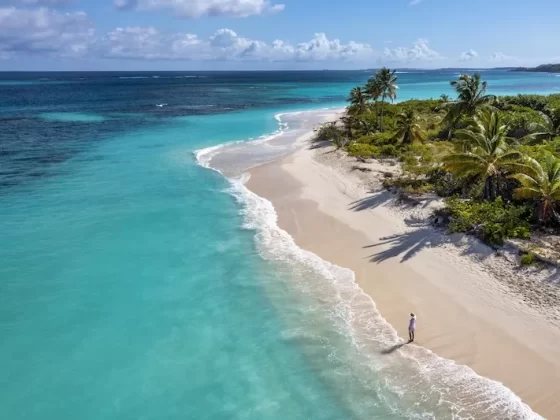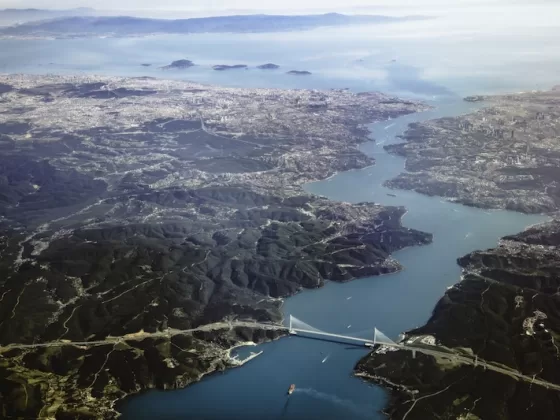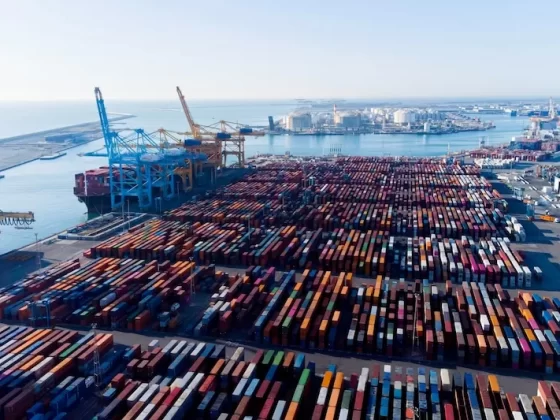Tensions rise across political, environmental, and social fronts this week. Japan tightens access to its iconic peak, Greenland resists renewed U.S. pressure, and protests erupt in Turkey over the arrest of a popular opposition leader. Malta clamps down on overtourism, wildfires sweep across South Korea, and a commercial flight is grounded by an unexpected passport mishap. Here’s what’s making headlines this week.

Peak Restrictions
Climbing Mount Fuji is about to get more exclusive—and more regulated. In response to growing environmental concerns and a rising number of inexperienced climbers, Japanese authorities are introducing a mandatory ¥4,000 (approx. $27) fee and a daily cap of 4,000 hikers. Climbers will need to book in advance and, in some cases, pass an online test to ensure they’re physically and mentally prepared for the challenging ascent. These measures come after years of overcrowding and safety incidents on the mountain’s most popular Yoshida Trail.
Officials say the new system is designed to protect both the mountain’s delicate ecosystem and the climbers themselves. Mount Fuji, a UNESCO World Heritage site, has seen a surge in tourism in recent years, leading to litter, trail erosion, and an alarming number of rescues. By limiting access and encouraging responsible hiking, Japan hopes to preserve the sacred peak for generations to come, while still allowing people the chance to experience its breathtaking summit.

Frozen Resistance
President Donald Trump’s renewed push to assert U.S. control over Greenland is facing fierce backlash from the island’s government and citizens. A U.S. delegation led by Usha Vance, including Trump-appointed officials, was met with public outrage after announcing plans to visit the autonomous Arctic territory. Greenland’s Prime Minister called the visit “highly aggressive,” accusing the Trump administration of attempting to expand influence over a region rich in natural resources—and strategically located amid growing Arctic tensions.
Read more like this: How Greenland Became the Arctic’s New Frontier
While the Trump team insists the trip is about “economic partnerships,” Greenlandic leaders see it as thinly veiled annexation. The government issued a firm statement that no official invitation was extended, and protests are expected upon the delegation’s arrival. The diplomatic misstep has sparked new conversations around Greenlandic autonomy and the rising geopolitical interest in the Arctic, particularly among major powers like the U.S., China, and Russia. For now, Greenland remains firm: not for sale, not for lease, and not interested.

Crackdown in Istanbul
Mass protests have broken out across Turkey following the arrest of Istanbul Mayor Ekrem İmamoğlu, a leading opposition figure and potential challenger to President Erdoğan. Authorities accuse him of corruption and terrorist affiliations, claims his supporters call politically motivated. Demonstrators have flooded the streets in Istanbul, Ankara, and other cities, demanding his release and warning of growing authoritarianism.
The government’s response has been swift and severe. Riot police have used tear gas and water cannons to disperse crowds, and more than 1,100 people have been detained, including journalists. Erdoğan has blamed the opposition for inciting unrest, while international observers raise alarm over the suppression of dissent and democratic backsliding.

Lagoon Limits
Comino, a tiny island in the Maltese archipelago, has long struggled with overtourism—driven largely by social media-fueled crowds flocking to its famed Blue Lagoon. Crystal-clear waters and picturesque views have made it a viral destination, but the influx of daily boatloads of tourists has overwhelmed the island’s fragile ecosystem and frustrated locals.
Read more like this: The Rise of Noctourism
Now, the government is pushing back. New regulations will limit the number of daily visitors, restrict boat access, and ban commercial kiosks from operating in protected areas. Environmental groups have welcomed the move, calling it a necessary step to preserve Comino’s natural beauty. Others worry it’s too little, too late.

Forgotten Flight Plan
A United Airlines flight from San Francisco to Shanghai made an unexpected U-turn this week for an unusual reason: the pilot forgot his passport. The aircraft had already reached cruising altitude when the realization was made, forcing it to return to California after several hours in the air. Passengers were left baffled as the plane landed and rescheduled the journey.
The incident has drawn criticism from both travelers and aviation analysts, raising questions about pre-flight protocols and cockpit oversight. While airline staff worked quickly to rebook affected passengers, the mishap became a viral moment and a logistical headache. United Airlines has yet to issue a detailed explanation but confirmed that the flight resumed with a new crew the following day.

Fanned by Flames
South Korea is battling a series of fast-moving wildfires in its southeastern region, prompting mass evacuations and a nationwide emergency response. Strong winds and dry conditions have fueled the blazes, forcing more than 6,000 residents from their homes and destroying large swaths of forest. Emergency services are working around the clock, with military helicopters and firefighting units deployed to contain the flames.
Read more like this: Last week’s Global Roundup News
Authorities have declared a state of disaster in affected areas, warning that the fires could spread further if weather conditions persist. While no casualties have been reported so far, damage to property and farmland is significant. Officials have also urged caution as more regions remain on high alert. The incident is yet another reminder of South Korea’s growing vulnerability to extreme weather events.
Stay updated with the latest news and trends from around the world. Subscribe now for in-depth analysis and real-time updates!










